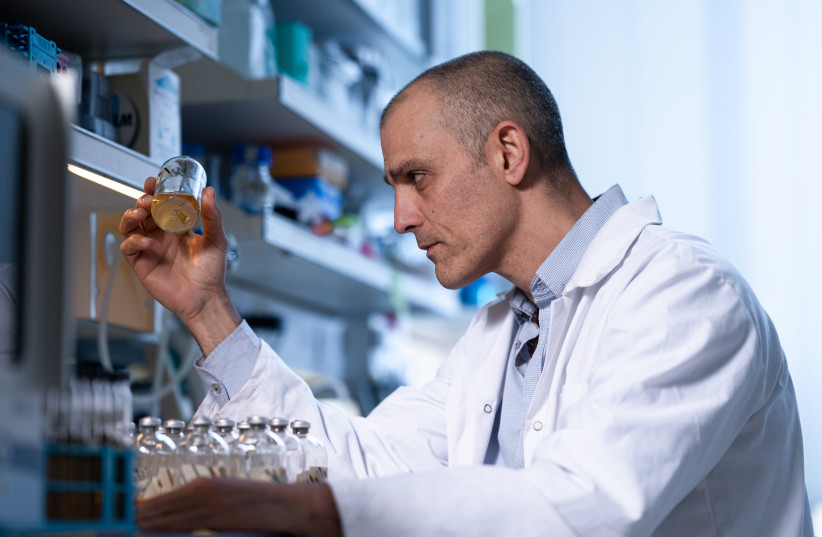NRS Impact, Ben-Gurion University and the Volcani Center recently established a joint effort to minimize global warming through microbiome technology that will reduce methane emissions – of cows.
“We are in a state of emergency,” said Sam Salman, chairman and CEO of Impact NRS. “The atmosphere is in danger, as are both our health and animal welfare. It’s like a candle burning on both sides.”
Today, around 30% of methane emissions are due to gas emissions from around 1.5 billion cows that are being used to produce milk and meat. The sustenance is necessary, Salman said, but the enormous damage being done to the atmosphere is not.
According to Salman the amount of methane produced by cows is mainly related to the microbial environment in their gut, called the rumen. The team’s theory is that if they could convert what currently becomes methane into milk, humanity would get more nutrition and less sickness.
Together, they are fine-tuning a technology designed to boost the efficiency of a cow’s digestion by intervening in the rumen microbiome.
“Fattening a cow is an expensive process that requires land, water and antibiotics,” Salman stressed. “Cows also emit methane, which causes global warming, and they transmit diseases to human beings.” His hope is to commercialize a product developed at BGU to change that.

The product does not yet have a name.
Impact NRS, founded in 2015, is an American Israeli innovation company. It focuses on solutions in the fields of health, nutrition, the environment and human and animal welfare. So far, it has invested around $50 million in research in Israel. The company provides the necessary tools for Israeli scientists to help it fulfill its mission.
Salman said that Impact NRS shares a close relationship with the Agriculture Ministry.
He explained the background of the project with BGU and the Volcani Center, saying “First, the grains consumed by the cows can be used for human needs, or even biological needs. At the same time, because they are huge quantities, the food given to them is not quality, and to make up for it, they are given drugs to prevent various diseases and infections.
“The problem intensifies once the cows have developed resistant strains of bacteria and they no longer respond to antibiotics,” he continued. “They develop − they find a way to develop, it’s their nature – and when they enter the human system, then the system begins to deal with drug resistant bacteria. We as humans are not equipped to deal with it.”

This is a “major threat to humanity,” he said.
However, if a cow’s likelihood to be “efficient” could be measured and scientists could then intervene to make the cow more efficient, the quality and availability of proteins for humanity could be improved. It could also reduce the risk of developing antibiotic-resistant bacteria, the amount of land and water required to maintain the level of protein produced, and substantially reduce methane.
“One of the biggest sources of man-made greenhouse gases is cows,” explained Prof. Itzik Mizrahi, an Impact NRS consultant from BGU’s Life Sciences Department. And methane is also one of the most potent greenhouse gases − 25 to 26 times more potent than carbon dioxide.
However, the “good news” is that methane only stays in the environment for about 10 years. So if the amount of methane being produced is reduced, it can have an almost immediate positive impact.
Mizrahi is also a member of the National Institute of Biotechnology in the Negev and of the School of Sustainability and Climate Change.
Here is how the Impact NRS-BGU-Volcani system will work: First, the team is working to measure what should be the right or optimal composition of bacteria in the gut of cows. This, Salman said, should take about 18 months.
The next thing would be to optimize their feed with an additive − the pellets developed by BGU − to limit methane production and maximize protein.
“We believe that within a brief period, the cow’s system can be optimized again, and it can be efficient again,” Salman said.
The goal would not be to raise fewer cows, which could be both an economic and nutritional blow, Mizrahi stressed. Rather, it would be working with farms to help make the industry more environmentally friendly − something he thinks companies would do and that could become a selling point for their meat and milk.
“When you do not negatively affect economics, you can lead global opinion toward a more environmentally friendly future,” he said.
